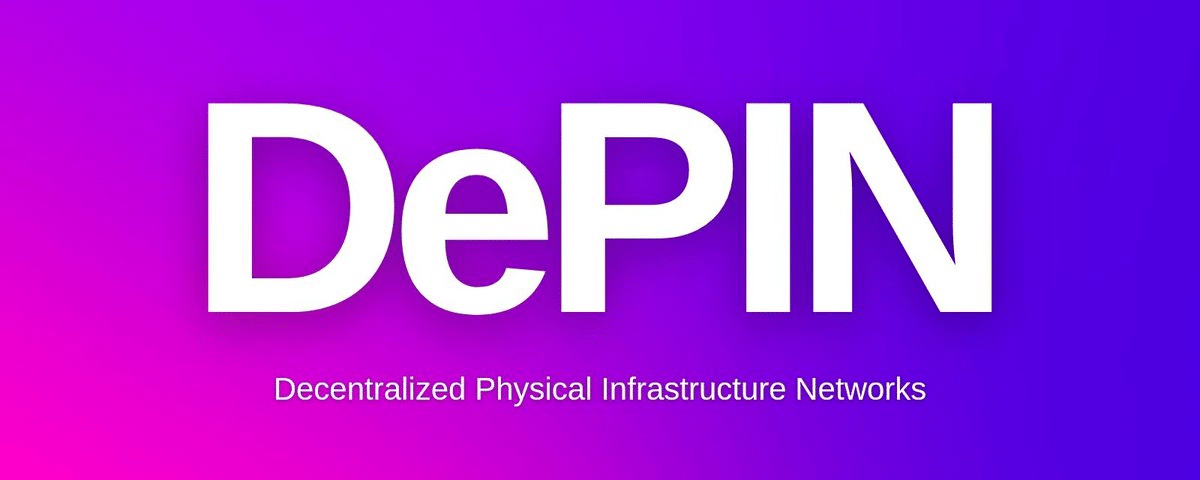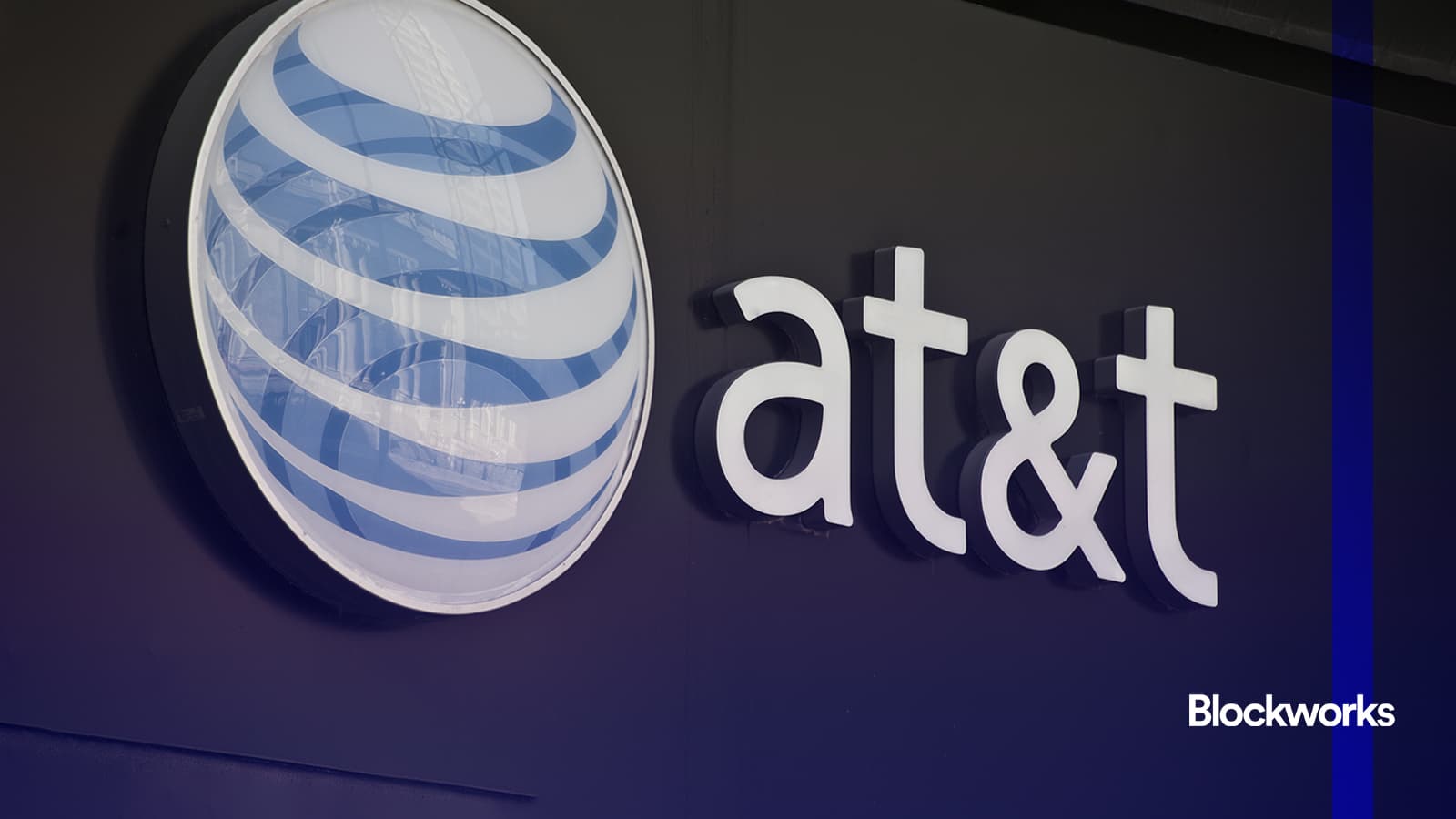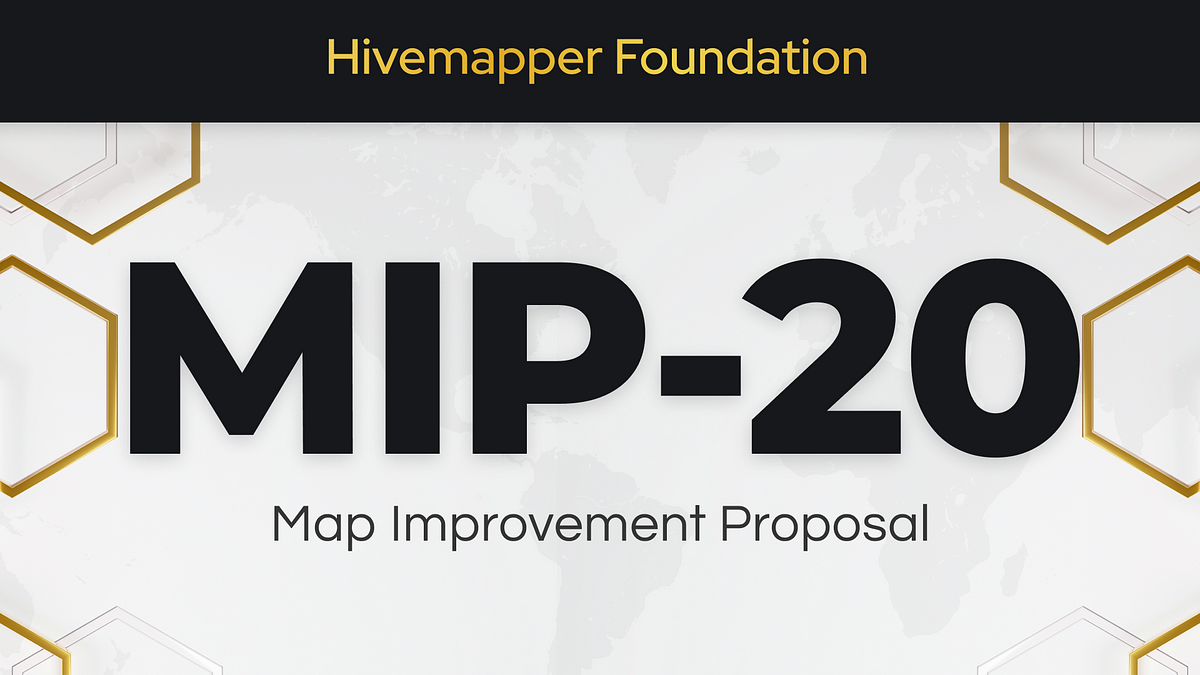Latest DePIN News

8 months ago
The Rise of Decentralized Physical Infrastructure Networks (DePINs) in Crypto
Decentralized Physical Infrastructure Networks (DePINs) are rapidly emerging as a pivotal narrative in the cryptocurrency landscape. These networks encompass a variety of applications, including decentralized cloud storage, wireless networks, and peer-to-peer energy grids. The potential of DePINs extends beyond mere technological innovation; they promise to reshape daily life by enhancing the sharing economy, improving supply chain management, and fostering sustainable energy solutions. Despite their significance, awareness of DePINs remains limited within the crypto community, making it essential to highlight their transformative capabilities as we enter a new bull market.
At its core, DePIN refers to a decentralized approach to building and managing physical infrastructure, akin to Amazon Web Services (AWS) but without centralized control. By leveraging crowdsourced resources, DePIN projects can significantly reduce the costs associated with establishing extensive physical infrastructure. For instance, decentralized cloud storage solutions like Filecoin and Storj allow users to contribute their unused storage space in exchange for rewards, while projects like Helium incentivize individuals to share their internet bandwidth. This innovative model not only democratizes access to essential services but also fosters a more resilient and localized infrastructure.
Despite the promise of DePIN technology, several challenges must be addressed to ensure its successful implementation. Key hurdles include ensuring robust cybersecurity measures, achieving scalability, and navigating regulatory landscapes. However, exciting developments are on the horizon, such as advancements in security protocols and integration with the Internet of Things (IoT). As DePINs continue to evolve, they hold the potential to revolutionize how we interact with our physical environment, paving the way for a more efficient and user-centric infrastructure in the future.

9 months ago
XNET Partners with AT&T to Enhance Decentralized Wi-Fi Network
XNET, a project based on the Solana blockchain, has recently announced a strategic partnership with AT&T, a major player in the US telecommunications industry. This collaboration aims to enhance the efficiency of mobile data traffic management by allowing AT&T to offload some of its mobile data onto XNET's decentralized network of Wi-Fi hotspots. XNET incentivizes businesses and public spaces to deploy these hotspots by rewarding them with XNET tokens, effectively creating a distributed wireless network that alleviates congestion and improves overall coverage. As part of this agreement, which has been operational since September 2024, AT&T customers can seamlessly connect to XNET's Wi-Fi network, with AT&T compensating XNET for the data usage in dollars, which is then distributed to XNET's node operators in the form of tokens.
Currently, XNET boasts 688 active nodes and has facilitated connections for approximately 9 million users through its network. The co-founder of XNET, Richard DeVaul, emphasized the importance of their token in financing the network's infrastructure, stating that traditional equity or debt financing would have posed significant challenges. He described XNET as a prime example of Decentralized Physical Infrastructure Networks (DePIN), showcasing how the project has successfully utilized its token to bootstrap operations and equipment financing. This innovative approach positions XNET as a unique player in the decentralized network space, distinguishing itself from competitors like Helium Mobile, which focuses on individual hotspot installations.
While both XNET and Helium Mobile operate in the decentralized network sector, XNET's business model is strictly B2B, targeting high-value locations for hotspot deployment. DeVaul noted that they view Helium as a potential customer rather than a competitor, indicating a collaborative spirit within the industry. As the demand for decentralized networks continues to grow, partnerships like that of XNET and AT&T may pave the way for more efficient and widespread internet access, ultimately benefiting users and businesses alike.

9 months ago
AI-Focused Cryptocurrencies Face Significant Decline Amid Microsoft Data Center Slowdown
The recent downturn in the cryptocurrency market, particularly for AI-focused tokens, has been significantly influenced by Microsoft's decision to slow its data center expansion plans. In the past 24 hours, Bittensor's token has plummeted by 10%, with a staggering 24% drop over the past week. Render Token (RNDR) and Grass have similarly faced declines of 10% and 20% respectively, contributing to a 10% decrease in the overall market cap of AI tokens tracked by CoinGecko. This trend mirrors the performance of major AI-related stocks, with NVIDIA experiencing a more than 30% decline from its 2024 peak and AMD dropping 47% from its highs this year.
The impact of Microsoft's announcement, which includes halting or delaying data center developments across multiple countries, raises concerns about the pace of growth in the AI sector. This news is particularly striking given Microsoft's pivotal role in AI commercialization through its collaboration with OpenAI, the creator of ChatGPT. Analysts from TD Cowen have expressed worries about a potential oversupply of data centers, suggesting that the demand may not keep pace with the rapid expansion previously anticipated.
The AI boom has attracted numerous developers in the crypto space, with projects like Bittensor offering decentralized marketplaces for AI learning models, where miners earn TAO tokens by contributing computing resources. Render operates on Solana, providing a platform for users to lease GPU power, while Grass incentivizes users to earn tokens through app installations. Additionally, the decline in AI meme coins, particularly within the Virtuals Protocol ecosystem, highlights the broader market correction, with tokens like GAME seeing their valuations plummet from $350 million to just $13 million since January.

9 months ago
Hivemapper Enhances Network Integrity with MIP-20 Verification Proposal
Hivemapper Network has introduced an innovative approach to verification through its Map Improvement Proposal 20 (MIP-20), which emphasizes the importance of maintaining the integrity and trustworthiness of the network. Instead of relying solely on human or hardware validation, the system is designed to combat fraudulent contributions, including AI-generated imagery and replay attacks. This proactive stance ensures that the network remains resilient against various forms of manipulation, thereby fostering a more reliable data environment.
At the core of Hivemapper's strategy is a vision-based consensus mechanism that operates at the hex level. This mechanism cross-references observations from multiple Bee devices, validating data based on the agreement of independent devices. For instance, if several devices report similar objects, such as traffic signs or toll prices, within the same timeframe and location, those observations are deemed valid. This method significantly reduces the likelihood of a single bad actor successfully injecting fake imagery into the network, as the consensus requires corroboration from diverse sources.
To further enhance the verification process, Hivemapper incorporates device diversity weighting. Contributions from devices with distinct hardware IDs and non-overlapping routes are given greater importance in the consensus process. This ensures that only authentic data from independently captured observations contributes to the network. Additionally, new Bee devices start with low trust and must build credibility through successful visual challenges, promoting a healthy ecosystem where good actors are incentivized to deploy more devices in low-traffic areas, thus improving overall network coverage and data freshness.

9 months ago
IoTeX to Lead DePIN Education Day in Washington D.C.
IoTeX is poised to take a significant step in promoting Decentralized Physical Infrastructure Networks (DePIN) with its upcoming DePIN Education Day in Washington, D.C., scheduled for April 3rd. This event will see representatives from IoTeX collaborating with the Blockchain Association to engage with members of Congress. The primary goal is to showcase how DePIN integrates cryptocurrency into real-world applications and to emphasize its importance for the United States. The initiative aims to educate lawmakers on the potential benefits of decentralized infrastructure and its implications for the economy and society at large.
The IoTeX platform, known for its open-source blockchain tailored for the Internet of Things (IoT), is designed to tackle various challenges faced by existing IoT ecosystems. These challenges include security vulnerabilities, high maintenance costs, and scalability issues. By developing a unique blockchain architecture that supports a multitude of IoT devices, IoTeX aims to create a more secure and efficient environment for decentralized applications and IoT ecosystems. The innovative structure features a "blockchain within a blockchain" approach, where the main network manages security and operations, while sub-blockchains handle specific IoT devices and transactions.
At the heart of the IoTeX network is its native token, IOTX, which facilitates transaction fee payments and enables participation in network governance. This token plays a crucial role in the ecosystem, allowing users to engage in the platform's operations and contribute to its development. As IoTeX prepares for its educational outreach in Washington, the project continues to highlight the transformative potential of blockchain technology in enhancing the functionality and security of IoT networks.

9 months ago
Roam to Sponsor 2025 Hong Kong Web3 Carnival with Free eSIM Data and WiFi Support
Roam, a leader in the DePIN track, has announced its participation as a primary sponsor at the 2025 Hong Kong Web3 Carnival, scheduled for April 6-9. In collaboration with the event organizers, Roam will provide attendees with complimentary eSIM data and WiFi network support, ensuring seamless connectivity throughout the venue. This initiative aims to enhance the overall experience for participants, allowing them to stay connected without interruptions during the event.
As part of its sponsorship, Roam will offer successful ticket purchasers 1GB of free eSIM data, which can be activated through the Roam App after following the instructions in their confirmation email. First-time users will also receive an additional 50MB of data. The Roam eSIM, which operates in over 180 countries, allows users to switch to local data automatically, thus avoiding high roaming fees. Roam's competitive pricing promises to reduce communication costs by 30% to 80%, making it an attractive option for travelers and business professionals alike. Users can also connect to over 4.5 million OpenRoaming WiFi hotspots globally, ensuring stable network access.
In addition to the eSIM offerings, Roam is engaging users through various activities, including the "Daily 2000 Steps Challenge" and exchange top-up promotions. Participants can earn rewards such as Roam eSIM data, USDT, and NFTs. Furthermore, Roam is conducting a limited-time reverse burn activity for ROAM token holders, enhancing profit potential for users. With over 3 million WiFi nodes and a growing user base, Roam is positioning itself as a significant player in the decentralized wireless network space, showcasing its commitment to user engagement and innovative solutions in the Web3 landscape.

9 months ago
Exploring the Best Crypto Airdrops of 2024
Airdrops have emerged as a prominent marketing strategy within the blockchain space, enabling projects to reward early adopters and attract new users by distributing free tokens. Participants can earn these tokens by completing simple tasks, such as following projects on social media or joining their community groups. In 2024, several notable airdrops are available, including Grass, a DePIN network that leverages idle internet bandwidth, and RetroBridge, a multi-chain token bridging platform. Other projects like WalletConnect and Rainbow Wallet are also offering airdrops, enhancing user engagement through point rewards and utility tokens.
Grass, for instance, allows users to earn Grass Points by running a node on their computer, with the potential for these points to convert into tokens in the future. The project has already distributed 100 million tokens to over 2 million users in its first airdrop phase and is currently in the second phase, distributing 17% of the total supply. Similarly, RetroBridge incentivizes users through various tasks, including token bridging and social media engagement, with plans to launch a marketplace for users to exchange their earned points for tokens in 2025.
As the landscape of crypto airdrops continues to evolve, platforms like Summer.fi and Zeek are also gaining traction by offering unique rewards systems. Summer.fi rewards users for engaging with DeFi protocols, while Zeek allows users to monetize their knowledge through a social network. However, participants should exercise caution, as not all airdrops are legitimate. Conducting thorough research and ensuring the authenticity of projects is crucial to mitigate risks associated with potential scams. Overall, airdrops remain a compelling way for users to engage with the blockchain ecosystem and potentially earn free cryptocurrency.

9 months ago
Traditional Investors Eye Decentralized Physical Infrastructure Networks for Growth
A recent report titled "The DePIN Token Economics Report" by Tom Trowbridge has shed light on the growing interest of traditional equity investors in Decentralized Physical Infrastructure Networks (DePIN). The report highlights how DePIN is revolutionizing real-world services such as Wi-Fi, energy, and computing. With over 1,000 projects and 3 million providers, DePIN has shown significant revenue traction, with hardware costs plummeting by 95% in recent years. Notably, Helium reported $350,000 in revenue for Q4 2024, while Geodnet achieved an annualized revenue of $3 million, showcasing the financial viability of these decentralized networks.
Traditional equity investors, who have historically been skeptical of token projects, are now recognizing DePIN as a promising investment avenue. The report indicates that this investor demographic is significantly larger than that of alt-coin investors, primarily due to DePIN's tangible services and impressive revenue metrics. The buy-and-burn mechanisms employed by various DePIN projects, such as Geodnet and Hivemapper, further enhance the appeal by linking revenue directly to token value. This financial model provides a clearer benchmark for investors, as evidenced by Geodnet's $500,000 revenue in Q4 2024, which supports price growth in its tokens.
Moreover, Trowbridge emphasizes the importance of simplicity in DePIN's token economics, suggesting that models should be straightforward to avoid confusion among investors. The report also highlights the necessity for transparency in the sector, especially in light of Helium's recent SEC charge for misleading investors. As DePIN continues to shift the narrative of cryptocurrency from speculation to utility, Trowbridge asserts that projects offering real-world services are scaling more rapidly and providing superior services at lower prices compared to their centralized counterparts. This shift could redefine the landscape of crypto investments, making DePIN a focal point for future growth in the industry.

9 months ago
DeFi Protocols Showcase Remarkable TVL Growth in Recent Month
In the ever-evolving landscape of decentralized finance (DeFi), Total Value Locked (TVL) serves as a critical metric for assessing the growth of various protocols. Recent data from Phoenix Group has revealed significant TVL increases across several projects in the past month, attracting the attention of investors and crypto enthusiasts alike. Among the top 15 projects, BUIDL has emerged as the standout performer, showcasing a remarkable 219% growth in TVL, which now stands at $1.8 billion. This tokenized money market fund, powered by BlackRock and built on the Ethereum blockchain, has seen its value triple in just three weeks, reflecting a heightened demand for secure crypto assets.
Following BUIDL, Sonic (S) has secured the second position with a 171% increase in TVL, demonstrating the platform's growing influence since its rebranding from Fantom. Level Finance (LVL) comes in third with a 123% growth, attributed to its unique offerings in the DEX perpetual trading marketplace on the BNB Chain. Euler (EUL) and Sky (SKY) round out the top five, with TVL growths of 105% and 55.6%, respectively. Sky's recent rebranding from Maker to Sky has successfully attracted more users to its platform, further enhancing its market presence.
Other notable projects that have seen impressive TVL growth include DeepBook (DEEP) with a 53.8% increase, Idle Finance (IDLE) at 51.9%, and Beethoven X (BEETS) with a 47.9% rise. The data highlights a vibrant DeFi ecosystem, with projects like Orderly Network (ORDER) and Pell Network Token (PELL) also making significant strides. As the DeFi space continues to mature, these growth metrics underscore the increasing interest and investment in innovative financial solutions within the blockchain realm.

9 months ago
Significant Growth in Total Value Locked Across DeFi Projects
The total value locked (TVL) in various cryptocurrency projects has seen remarkable growth, as highlighted in a recent research document by Phoenix Group, which utilizes data from DeFiLlama. TrueFi (TRU) has emerged as the leading project, boasting a TVL increase of $260.2k, equating to an impressive 424% surge. This growth positions TrueFi ahead of its competitors in terms of locked value, showcasing the increasing investor confidence in decentralized finance (DeFi) markets.
Following TrueFi, three DeFi projects—Mint ($MINT), Maple ($MPL), and Zircuit ($ZRC)—have also experienced notable TVL growth. Mint currently holds a TVL of $1.5 million, while Maple and Zircuit report $454.4 million and $890.8 million respectively. This upward trend in TVL indicates a growing trust among investors and heightened activity within the DeFi sector, reflecting a broader acceptance of decentralized financial applications.
Additionally, other protocols such as Note ($NOTE), Euler ($EUL), and Velodrome ($VELO) have shown substantial TVL increases, with values rising to $13.5 million, $377.1 million, and $66.7 million respectively. The overall growth in TVL across multiple platforms signifies a diverse and expanding DeFi landscape, driven by enhanced liquidity and user engagement. As protocols like $IDLE, $PUFFER, $BLUE, and $CPOOL report successive growth, the ongoing trends are reshaping the DeFi ecosystem, attracting more capital inflows and reinforcing the foundation of decentralized finance networks.
Signup for latest DePIN news and updates